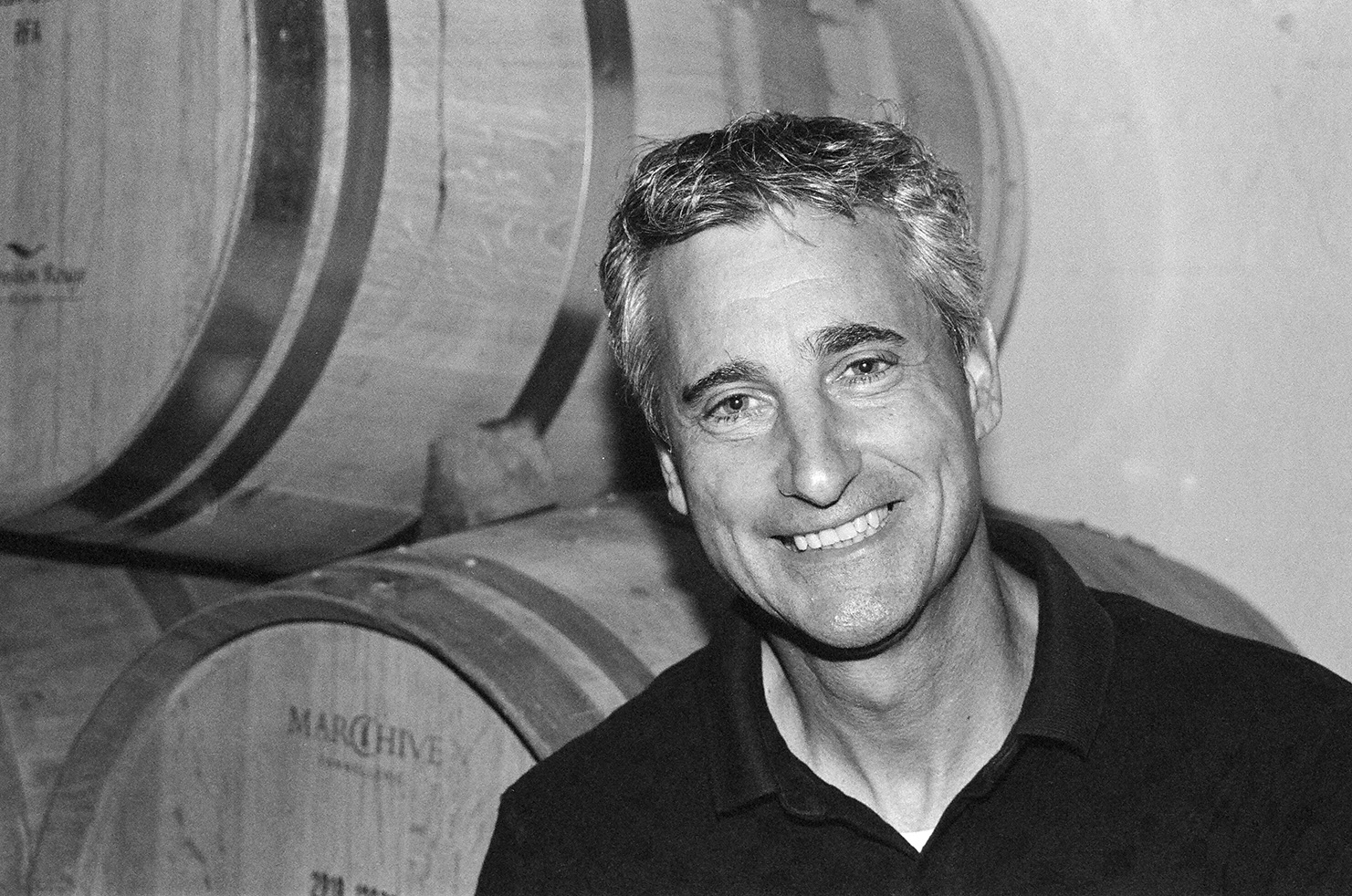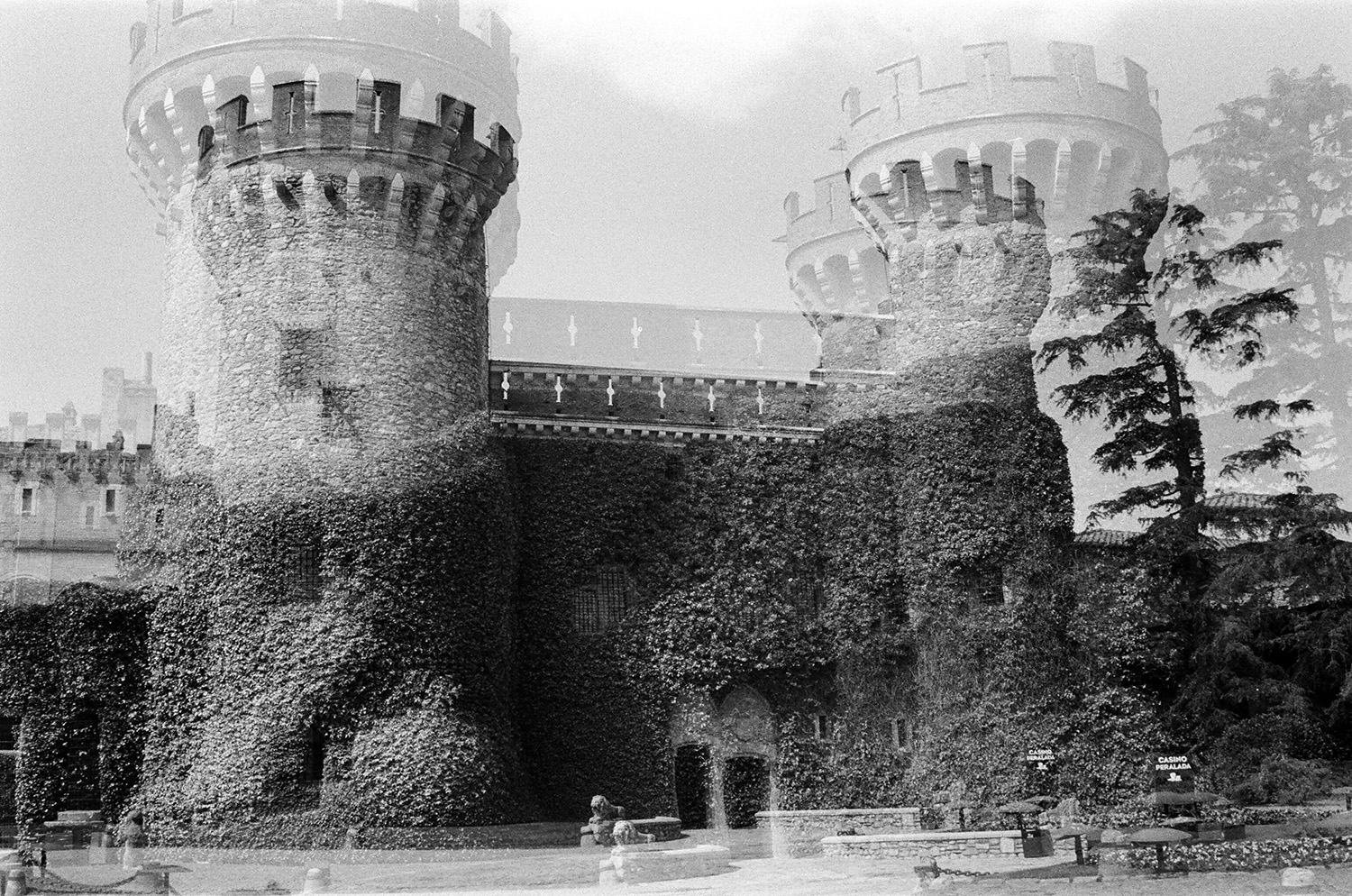
INTERVIEW
“It’s important to do the job, but you must know how to communicate it”
Delfí Sanahuja, oenologist of Peralada Group, tells us his vision of the future of wine
April 2021
Delfí Sanahuja wanted to be a chemical engineer, an industry rooted in his land, Tarragona.
He imagined himself investigating, developing scientific work.
But Oenology got in his way, and he had qualities that appealed to him the most.
Above all, the variety of work, which is multidisciplinary: The vineyards, work in the winery, researching and trying new things and, later, the social aspect, being able to transmit passion and have contact with people.
And in these areas, chemical engineering was not so interesting …
No one could have guessed that he, being a native of Valls (Tarragona) and surrounded by DOs like Priorat or Penedès, would end up working in the winery farthest from his house, in the Empordà.
He began doing an internship in Peralada convinced by a friend and, when he finished his degree, he stayed to live in this area, which at that time had less than half of the current wineries and was not well known yet.
Since then, Peralada has gone from producing 8 to 34 wines and, currently, they have wineries in Empordà and other areas such as Priorat, Rioja or Penedès.
But Delfí, who humbly defines himself as “passionate about the world of wine”, stays here, in the Empordà.
What made you choose the Empordà, so far from home and still little known in those years?
I am restless by nature and I saw it as an opportunity, the owner was open to experimentation and expansion. It was not a winery of those in which everything is already done and they only want to maintain themselves or change very little, but a window opened to me with many things to do, plant new vines, make new wines, investigate …
Is research an important part of a winemaker’s job?
In my case, it is one of the parts that I enjoy the most. I had José Luis Pérez as a mentor, he is creator of Mas Martinet, one of the promoters of Priorat, and one of the most important wine researchers at an international level. I suppose that this, linked to my scientific side and the spirit of the owner and the team, has led us to bet on continuous improvement, challenge ourselves and never stop looking for new ways of making wine.
Are Ex Ex wines the clearest example of this commitment to research?
Indeed. The Ex Ex wines, Exceptional Experience, are wines of the highest quality and characterized by being unique, different from everything we do, even from the other Ex Ex. At the moment we have made 13 Ex Ex since 98. They are wines collector’s items and for those looking for experimental things but with exceptional quality. If not, they would stay in Ex only, instead of Ex Ex.
Will we find the Ex Ex 14 in 2021?
We cannot know. We have only released 13 Ex Ex at the moment, although in the winery we have 50 investigations that can become Ex Ex. Normally every year or year and a half we release an Ex Ex, but this is not always the case …
“Oh, when there is a downpour you will find the vineyards in the sea”, people told you when you planted the vineyards of Finca Garbet, facing the sea …
Yes, the local people saw me as a young man from Tarragona who did not see that it did not make any sense, on a mountain with a slope of 40% and tramontanes of 140 km/hour.
But it was a dream of the owner, to return to the mountain viticulture that had existed in the Cap de Creus area and that was abandoned, first with the phylloxera of the late nineteenth century and, later, when people left the countryside to go to work in tourism.
Now we do heroic viticulture, it has been a challenge and we have gone through difficult times due to all the effort that it takes to make wine from a vineyard like this, but the result has been spectacular and now it is a landscape wine of the highest quality.
Landscape wine?
Yes, each time, fortunately, people seek more those wines that reflect the territory, people want to know where that wine is from, what vine it is made from, even what trees and flowers surround the vineyard, because this part also affects them in terms of biodiversity.
Is this what you explain in the tastings you offer?
This and the philosophy behind it. Why a wine has been made, what we wanted to achieve, how we created it, the history of the vineyards … I believe that those of us who are dedicated to disseminating the world of wine, whether we are winemakers, journalists or sommeliers, must do so in an understandable, simple way, giving few guidelines on the technical part but explaining more the philosophy of the wine and the winery. Perception is subjective, and for someone who has never smelled jasmine is impossible to perceive it in wine. Instead, everyone can understand the landscape or the goals you had when you created that wine.
What advice would you give a young, newly graduated winemaker?
First of all, he or she must have passion. This job requires a lot of effort and dedication. For the harvest and, later in the winery, there is daily work, weekends included, at least two or three months a year.
Also, he must make a wine that expresses the territory where it is made.
And finally, he must know how to communicate what he does. It is important to do the job, but you have to know how to communicate it.

The castle of Peralada, from the 14th century, historical headquarters of the Peralada Group.
Peralada Group has been able to do this quite well …
In Peralada we have bet a lot on marketing and communication, making visits to the winery, the Music Festival, and exporting our wine, making it present in local restaurants but also in Barcelona and outside Catalonia.
Has COVID-19 been a very hard blow for the Empordà wineries, which sell a lot locally?
Without a doubt, and if we can look for a positive part of this pandemic, it has been that it has caused changes that perhaps should have been made before, such as the internationalization of Empordà wines. The wineries, not only in Empordà, which already exported to other markets, have suffered a little less and have managed to sell a little more due to diversification than those who had a more local circuit.
How do you see the Empordà in five or ten years?
I believe that the Empordà has incredible potential. Things have been done very well, there are wineries and wines of very high quality and we have been lucky to have the support of the restaurants in the area, which have opted for local wines in their menus and it is increasingly difficult to find a restaurant that does not have at least one Empordà wine among its references, which years ago was not so common.
Now it’s time to expand, to be present in Barcelona venues, which attracts millions of tourists from all over the world, who if they have the opportunity to taste a wine from the Empordà, perhaps later they will want to find it in their country of origin.
Talking about the Empordà is talking about wine, but also about cork.
Definitely. We have talked about the importance of the landscape and the products of the territory. But not only in the Empordà. I think that in the upper-middle and upper range there should always be a very good natural cork. And I believe that this relationship will never be broken.
—
Text: Carola P. Badua
Photos: Caroline Faiola
